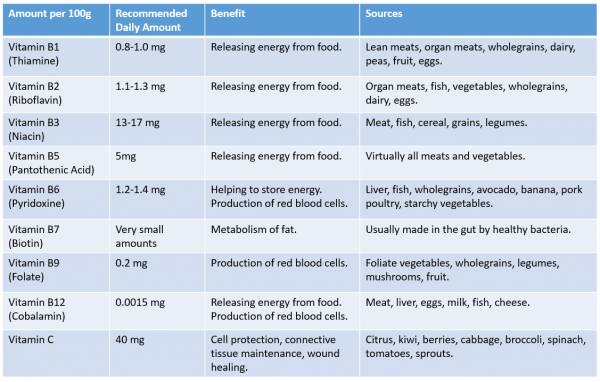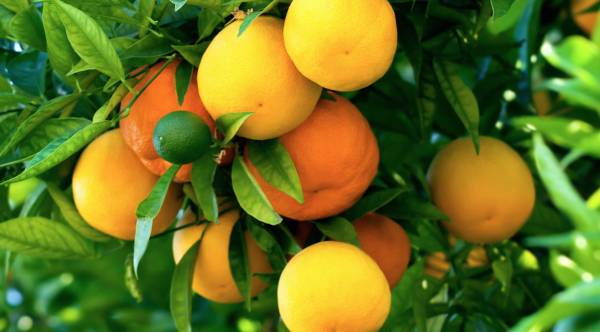I am sometimes surprised by my fellow cyclists who are prepared to work hard in their training sessions and are happy to consume numerous supplements, but don’t like to eat their greens. By doing so they miss out on an important part of their performance strategy. In particular, I am thinking of the B vitamins and vitamin C.
The Importance of Vitamins
Vitamins fall into two categories: fat-soluble and water-soluble. The fat-soluble vitamins can be stored in body fats and carried over from day to day so that they can be deployed as required. Unlike the fat-soluble vitamins, water-soluble vitamins cannot be stored, so you require a steady feed of these to support bodily functions.
The B series vitamins and vitamin C are water-soluble and should therefore be a regular part of your daily food intake. They are sometimes called essential vitamins for this reason.
“Unlike the fat-soluble vitamins, water-soluble vitamins cannot be stored, so you require a steady feed of these to support bodily functions.”
The B vitamins support a large number of chemical reactions within the body associated with the production of red blood cells and the release of energy from food. Healthy red blood cells are required for peak performance and to support your training load. Without the B vitamins, all those carbohydrates and fats that you have been eating will not be effectively converted into energy.
Vitamin C is also an important essential vitamin. Although it is usually known for its role in supporting the immune system, it also plays an important part in collagen production. Collagen is used to produce and repair connective tissue. If you have been training a significant amount, it is possible that you have put some strain on connective tissues, so vitamin C should form part of your recovery strategy.
Vitamins in Action
Here is a table summarizing the benefits and typical recommended amounts of the water-soluble B vitamins, and vitamin C that you need every day:

Let’s look into the vitamin B9 in more detail. This vitamin in found in large quantities in folate-rich vegetables. One example of this is spinach. This has 0.194mg of vitamin B9 per hundred grams, which is just about the total recommended daily amount for an adult. A cupful of leaves is about 40 grams.
Citrus fruits are a common source of vitamin C. A medium orange has about 70mg of vitamin C which should be sufficient for your daily needs. It is also found in green vegetables such as broccoli, sprouts, and cabbage. For example, half a cup of broccoli has about 50mg, which is close to the recommended daily amount.
While there is little evidence to support the notion that supplementation of B vitamins will improve performance (unless you have a medical condition), a deficit in B vitamins or in vitamin C caused by imbalances in your nutrition may have an adverse effect. This may be the case if you are restricting food intake as part of a weight management program.
This was found to be true in a study at Oregon State University in 2006. Researchers found athletes who had a history of low B vitamin intake either by inattention to nutritional needs or food restriction would have poorer performance. Their review also stated that exercise may increase the requirements for vitamins B2 and B6. Excess supplementation did not appear to offer performance benefits. Large quantities could in some cases be detrimental.

Don’t Skip Your Greens
The safest route for top performance and quality training is to ensure you have a nutrition strategy that guarantees sufficient regular intake of these essential vitamins through food every day. If you have a medical condition, you should seek additional advice.
“A deficit in B vitamins or in vitamin C caused by imbalances in your nutrition may have an adverse effect.”
While there seems to be little evidence that excess supplementation will lead to any improvement, you should ensure you are not in any deficit by eating a good mix of green vegetables. Meeting at least the minimum recommended amount every day will help you stay in peak condition for competition and training.
More on cycling and nutrition:
- Multivitamins Improve Nutrition and Prevent Disease
- Premium Nutrition to Cycle Even Faster
- The Importance of Micronutrients in a Cyclist’s Diet
- New on Breaking Muscle Today
References:
1. National Institute of Health Factsheets. Accessed 22 September 2015.
2. United States Department of Agriculture National Nutrient Database. Accessed 22 September 2015.
3. European Institute of Fitness, Master Trainer Course Manual. International School of Personal Training.
4. National Health Service, Vitamins and Minerals. Accessed 22 September 2015.
5. Williams, MH., “Dietary Supplements and Sports Performance: Introduction and Vitamins,” Journal of the IntlSociety of Sports Nutrition, 2004; 1(2): 1–6.
6. Woolf, K., and Manore, MM., “B-vitamins play an important role in athletic performance,” Intl Journal of Sport Nutrition and Exercise Metabolism, 2006, 16, 453-484.
Photos courtesy of Shutterstock.






